PIP implants not toxic - final report
- Published
- comments
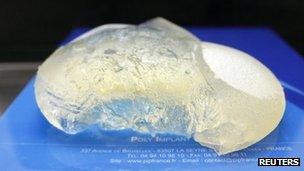
A ruptured PIP breast implant
The final report, external into the PIP breast implant scandal has concluded that the gel material does not cause a long-term threat to human health.
It says the implants, which were made with unauthorised silicone filler, are not toxic nor carcinogenic.
The review, led by Prof Sir Bruce Keogh, the NHS medical director, said they do have double the rupture rate of other implants.
Around 47,000 women in the UK have had the implants fitted.
Around 95% were fitted privately. A minority of operations were carried out on the NHS, mostly for breast reconstruction following cancer.
In January Prof Keogh's team concluded, external there was insufficient evidence to recommend the routine removal of PIP implants. But it recognised the concern that the issue was causing.
It found there was no link between PIP implants and cancer, and the evidence on increased rupture rates was inconclusive.
His final report has just been published, external.
Gemma Pepper had PIP implants fitted days before questions surfaced about their safety
Prof Keogh said women had faced an "incredibly worrying time".
He said that repeated tests in many countries have "shown that the implants are not toxic and therefore we do not believe they are a threat to the long-term health of women who have PIP implants".
He added: "We have however found that these implants are substandard, when compared to other implants and that they are more likely to rupture. We would therefore advise that women who have symptoms of a rupture - for example tenderness, soreness or lumpiness - should speak to their surgeon or GP."
The president of the British Association of Aesthetic Plastic Surgeons, Fazel Fatah, said: "Despite rigorous testing showing no long-term danger to human health from the individual chemicals in the gel, the fact remains that PIPs are significantly more likely to rupture and leak and, therefore, cause physical reactions in an unacceptable proportion of the patients.
"We agree with the report findings that anxiety itself is a form of health risk and thus it is entirely reasonable for women to have the right to opt for removal - regardless of whether there has been rupture."
The advice for patients has not changed.
Throughout the UK any women who had PIP implants fitted on the NHS can get them removed and replaced free of charge.
In Wales the NHS will also replace those of private patients. In England and Scotland the NHS will remove implants of private patients but not replace them.
Last month, a separate review, external led by Health Minister Lord Howe examined the role of the Department of Health and the UK regulator the MHRA.
It said serious lessons must be learned and questioned how well women with these implants were informed about the risks.
- Published18 June 2012
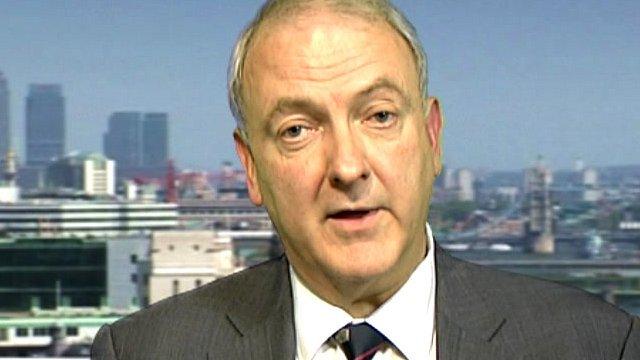
- Published6 January 2012
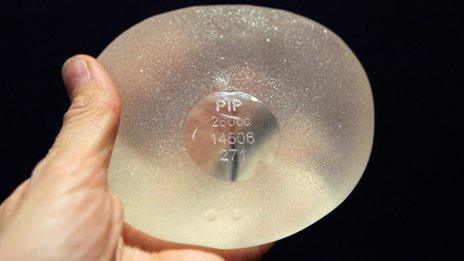
- Published10 December 2013
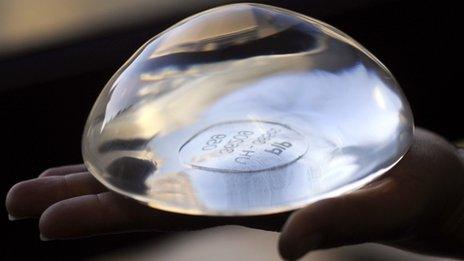
- Published6 January 2012

- Published6 January 2012
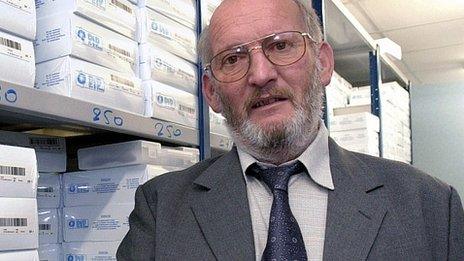
- Published4 January 2012
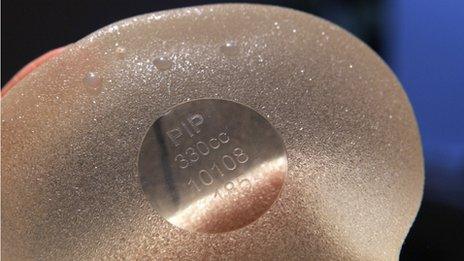
- Published3 January 2012
- Published21 December 2011
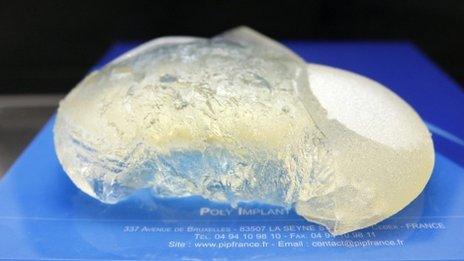
- Published18 June 2010